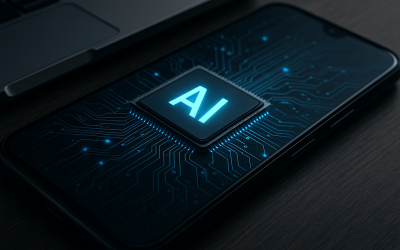GPT Codex: Disruptive Tool or Overhyped Hype in Software Development’s Future?
As artificial intelligence continues to evolve, GPT Codex emerges as a groundbreaking tool in software development. But is it truly a disruptive force, or just another overhyped innovation? This article delves into the potential of GPT Codex, examining its impact on coding practices and the broader implications for the software development industry.
The Potential of GPT Codex in Software Development
GPT Codex, an advanced AI model developed by OpenAI, promises to revolutionize the way software is developed. By translating natural language into code, it aims to streamline the coding process, making it more accessible and efficient. This capability is not just about writing lines of code faster; it represents a fundamental shift in how developers interact with programming languages.
Efficiency and Accessibility
One of the most significant advantages of GPT Codex is its potential to enhance efficiency. By automating routine coding tasks, developers can focus on more complex problem-solving and creative aspects of software development. This shift could lead to faster project completion times and reduced costs, as less time is spent on mundane tasks.
Moreover, GPT Codex democratizes coding by lowering the entry barrier for non-experts. Individuals with limited programming knowledge can leverage this tool to create functional software, fostering innovation and creativity across various fields. This democratization could lead to a surge in software development activity, as more people are empowered to bring their ideas to life.
Quality and Consistency
Another critical benefit of GPT Codex is its potential to improve code quality and consistency. By following best practices and standardized coding conventions, the tool can help reduce bugs and errors, leading to more reliable software products. This consistency is particularly valuable in large-scale projects where multiple developers are involved, ensuring that the codebase remains coherent and maintainable.
Challenges and Limitations of GPT Codex
Despite its promising potential, GPT Codex is not without its challenges and limitations. Understanding these constraints is crucial for evaluating its true impact on the software development landscape.
Complexity and Context
While GPT Codex excels at generating code snippets, it struggles with understanding complex project requirements and context. Software development often involves intricate systems with interdependent components, and AI models like Codex may lack the nuanced understanding needed to navigate these complexities effectively. This limitation means that human oversight and intervention remain essential for ensuring the successful integration of AI-generated code.
Ethical and Security Concerns
The use of AI in software development raises ethical and security concerns. As GPT Codex generates code based on vast datasets, there is a risk of inadvertently incorporating biased or insecure code patterns. Developers must remain vigilant in reviewing AI-generated code to prevent potential vulnerabilities and ensure ethical standards are maintained.
Additionally, the reliance on AI tools could lead to a skills gap, where developers become overly dependent on automation and lose the ability to code manually. This dependency could have long-term implications for the industry, as the foundational skills of software development are gradually eroded.
Strategic Implications for the Future
As we consider the future of software development, the role of GPT Codex and similar AI tools cannot be ignored. Strategic thinkers and industry leaders must weigh the benefits against the challenges to make informed decisions about integrating AI into their development processes.
Adapting to Change
Organizations must adapt to the evolving landscape by investing in training and development programs that equip their teams with the skills needed to work alongside AI tools. This includes fostering a culture of continuous learning and encouraging developers to embrace new technologies while maintaining their core coding skills.
Moreover, companies should establish robust governance frameworks to manage the ethical and security implications of AI-generated code. By implementing rigorous review processes and maintaining transparency, organizations can mitigate risks and build trust with stakeholders.
Long-term Vision
In the long term, the integration of AI tools like GPT Codex could lead to a more dynamic and innovative software development industry. By freeing developers from routine tasks, AI can unleash creativity and drive the creation of more sophisticated and impactful software solutions.
Ultimately, the key to harnessing the potential of GPT Codex lies in striking a balance between automation and human expertise. By leveraging AI as a complementary tool rather than a replacement, the industry can achieve new heights of efficiency and innovation.
Conclusion
GPT Codex presents both opportunities and challenges for the future of software development. While it offers the potential to enhance efficiency and democratize coding, it also raises concerns about complexity, ethics, and skills erosion. Strategic adaptation and a balanced approach will be essential for realizing its full potential and shaping a more innovative and resilient industry.



0 Comments